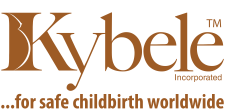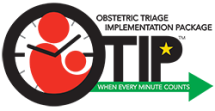By Erin Pfeiffer
Wake Forest School of Medicine medical student Sung Min Kim took a year off from her studies to assist in Kybele’s work toward improving childbirth outcomes in Ghana. In the following interview, Sung Min reflects on an experience that impacted both herself and the patients of Ridge Regional Hospital in Accra, Ghana.
Tell me a little about yourself and how you became interested in the medical field?
I was born in Seoul, Korea, and came to America when I was 3 years old. My brother and I grew up in a very traditional Korean household and began school without speaking a word of English. We acclimated through our schooling in North Carolina and eventually attended the NC School of Science and Math, which piqued my interest in science and medicine. I decided to go to Wake Forest University in Winston-Salem, N.C., for my undergraduate studies and became involved in a student medical society. I had the opportunity to study abroad in Denmark with a program called Medical Practice and Policy, which allowed me to take a public health course called Health Beyond Borders. Through the connections there, I was able to travel to Uganda and Peru in subsequent summers to work with a program for preventable diseases that provides health education and screening to women in rural regions. I began to grow in my curiosity of what people were doing in rural, hard-to-access areas to improve health.
How did you first get involved with Kybele?
After I graduated from Wake Forest University, I had a friend who did a fundraiser party for Kybele. I was extremely interested in their work and their global research related to improving childbirth outcomes. I spoke with Dr. Medge Owen about my desire to participate in Kybele’s work, and she mentioned the project in Ghana at Ridge Regional Hospital on quality improvement. I found Dr. Owen’s mission really admirable and was so impressed by what she was able to do with little funding. She has a curiosity and determination of how health systems can be improved, which was a great inspiration. It gave me interest in doing something like that in the future.
So you spent the spring and summer of 2014 in Ghana with Kybele. What was your role there?
At Ridge Regional Hospital in Ghana’s capital, I focused on quality-improvement data. I looked at how C-section delay time relates to maternal and neonate outcomes. This research brought to light the great need for Ridge Regional Hospital to implement quality-improvement research into their curriculum to improve patient safety and health outcomes. After that, we worked on several NICU baseline projects because they (Ridge Regional Hospital) were about to be donated several state-of-the-art CPAP machines. The bulk of my stay required me to gather as much information as possible from both the maternity and NICU wards. I assisted in implementing and training staff on CPAP (Continuous Positive Airway Pressure) machines. So many babies go into the NICU premature and just need a little help breathing. One little thing can make such a difference to help babies survive. Lastly, I also helped with the leadership training sessions. We looked at teamwork and accountability, which is so intuitive for us but is something their medical practice culture does not focus on. It was interesting to learn how different people with different backgrounds can all have such a passion for seeing health outcomes improve. The staff all wanted change and have enthusiasm to do so, but they just don’t have the resources or support 24-7 due to the climate they are in.
What changes did you see while you were in Ghana?
I especially saw the impact of the nurse anesthesia program. I conducted interviews with graduates of the program and witnessed several who were originally doing their first spinal and then did 40 by end of the week. I saw how comfortable they became at it and how “exposure” can make a huge difference in both skill and confidence. I also watched triage quality-improvement activities and the advancement of staff in keeping logbook records of incoming diagnoses. These steps will improve how research is conducted to find gaps in medical practice and correct them. By writing all of these measures down, I hope the nurses and physicians will practice teamwork and accountability through this process.
How did your experience impact you?
It was definitely eye-opening. It is hard to see so much overcrowding and how patients suffer from lack of resources. The government is not helping pay for antibiotics. Midwives are working 18-hour shifts and are tired. And women are giving birth on benches in the waiting room.
My experience made me a lot more interested in academic medicine. Showing your expertise can change future medicine, and those standards can spread. In essence, I hope to bridge the gap between medical knowledge and medical practice. The fact we know that triaging patients has been shown to improve care in a timely manner is constantly used in our medical setting, but it has only been within the past several years that Ridge Hospital has started using this method in a more systematic way with the help of Kybele. I am encouraged to be able to teach someone else a vital skill and for them to be able to teach others. I would like to be more involved in teaching residents and medical or pre-med students to get them excited about how medicine and practice standards are constantly evolving and inspire them to believe that there is always something to advance on.
These desires came when I saw a father holding his 26-week premature baby’s finger as his baby passed away from preventable causes. This shouldn’t be the case.


